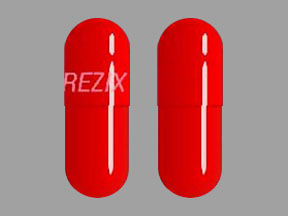
Apap-caff-dihydrocodeine Coupons & Savings Card – Discount Prices from $77.48
Generic for: Trezix
Trezix is a medication designed to alleviate moderate to severe pain, especially when non-opioid options are insufficient. This combination drug includes dihydrocodeine, an opioid that alters the brain's response to pain; acetaminophen, which not only aids in pain relief but can also reduce fever; and caffeine, which enhances the overall pain-relieving effects, particularly for headache-related discomfort. It is important to note that long-term use of Trezix may lead to dependency, and sudden discontinuation can cause withdrawal symptoms. Additionally, excessive caffeine intake should be avoided to prevent side effects like nervousness and rapid heartbeat. Always consult with a healthcare professional before starting or stopping any medication.
Our coupons are free to use. Before paying, show the pharmacist your Apap-caff-dihydrocodeine savings card to get your free discount. Use our filters below to edit the prescription box to match your needs. The Apap-caff-dihydrocodeine prices will update based on your prescription needs. Above our Apap-caff-dihydrocodeine coupons, you can change your location to see pharmacy prices and costs in other areas. We're here to help you buy Apap-caff-dihydrocodeine at the lowest price with our prescription discount card.
My prescription
Edit
320.5-30-16MG, Apap-caff-dihydrocodeine (100 Capsules)
Select pharmacy

CVS
$118.50
COUPON PRICE
Albertsons
$77.48
COUPON PRICE
Walgreens
$110.92
COUPON PRICE
Walmart
$343.81
COUPON PRICEApap-caff-dihydrocodeine savings card
Show this card to your pharmacist
Albertsons
$77.48
BIN
ID
PCN
GRP
019876
LH9B83442F
CHIPPO
LHX
Powered by
Trezix is a medication designed to alleviate moderate to severe pain, especially when non-opioid options are insufficient. This combination drug includes dihydrocodeine, an opioid that alters the brain's response to pain; acetaminophen, which not only aids in pain relief but can also reduce fever; and caffeine, which enhances the overall pain-relieving effects, particularly for headache-related discomfort. It is important to note that long-term use of Trezix may lead to dependency, and sudden discontinuation can cause withdrawal symptoms. Additionally, excessive caffeine intake should be avoided to prevent side effects like nervousness and rapid heartbeat. Always consult with a healthcare professional before starting or stopping any medication.
Our coupons are free to use. Before paying, show the pharmacist your Apap-caff-dihydrocodeine savings card to get your free discount. Use our filters below to edit the prescription box to match your needs. The Apap-caff-dihydrocodeine prices will update based on your prescription needs. Above our Apap-caff-dihydrocodeine coupons, you can change your location to see pharmacy prices and costs in other areas. We're here to help you buy Apap-caff-dihydrocodeine at the lowest price with our prescription discount card.
More prescriptions for pain
coupons from$3.90Save 84%
coupons from$1.01Save 95%
coupons from$71.75Save 32%
coupons from$16.42Save 74%
coupons from$7.93Save 67%
coupons from$9.59Save 67%
coupons from$34.67Save 74%
coupons from$76.38Save 82%
More prescriptions for pain
Ketorolac Tromethamine +rfid Save 84%coupons from $3.90
Bupivacaine Save 95%coupons from $1.01
Vazalore Save 32%coupons from $71.75
Lidocaine-prilocaine Save 74%coupons from $16.42
Naproxen Sodium Save 67%coupons from $7.93
Pharbetol Save 67%coupons from $9.59
Butorphanol Save 74%coupons from $34.67
Flector Save 82%coupons from $76.38
Apap-caff-dihydrocodeine dosage forms
Use our Apap-caff-dihydrocodeine 320.5-30-16MG coupon with prices from $77.48 for 100 Capsules.
Dosage Quantity Price from Per unit 320.5-30-16MG 100 Capsules $77.48 $0.78
| Dosage | Quantity | Price from | Per unit |
|---|---|---|---|
| 320.5-30-16MG | 100 Capsules | $77.48 | $0.78 |
